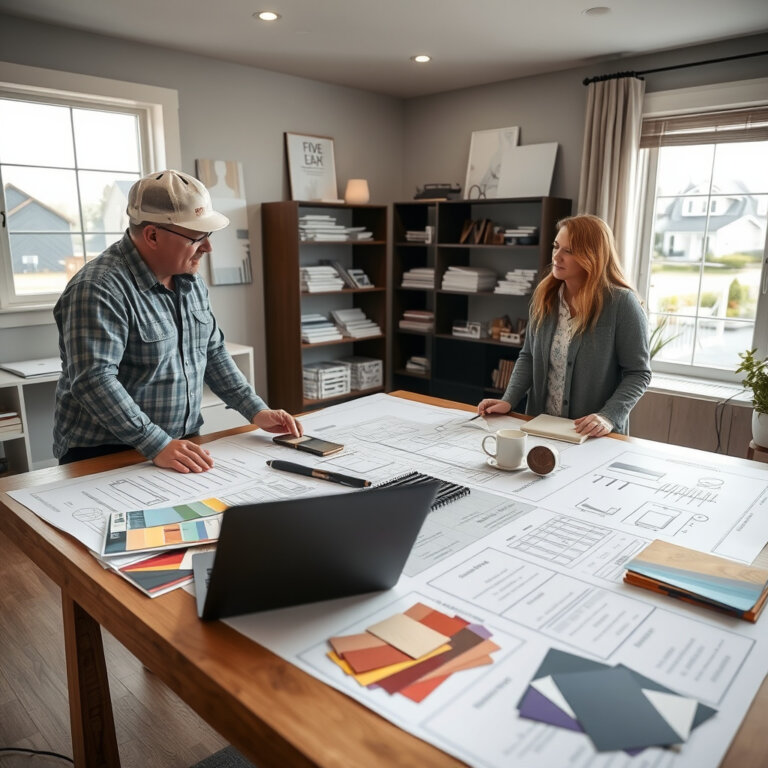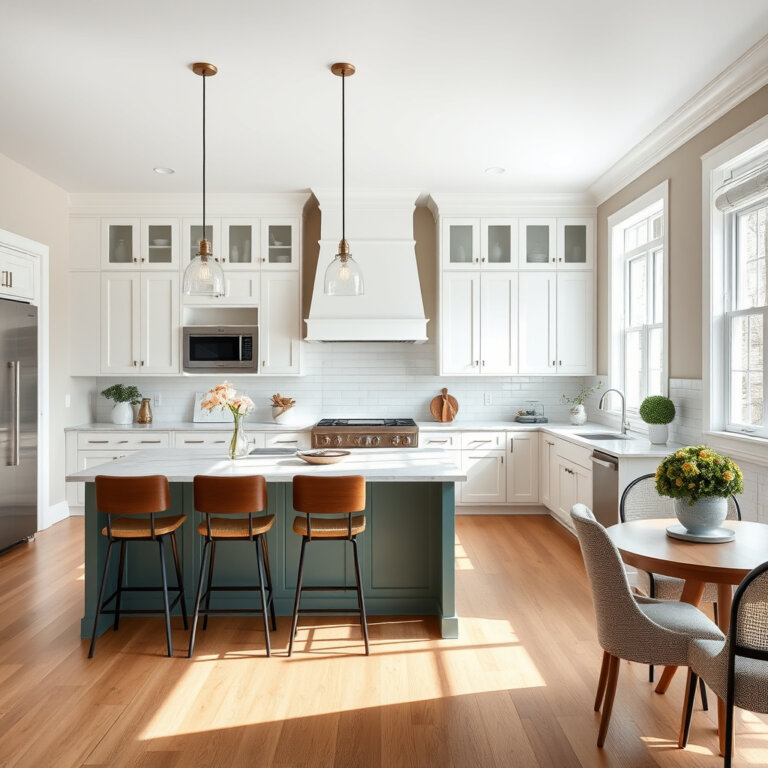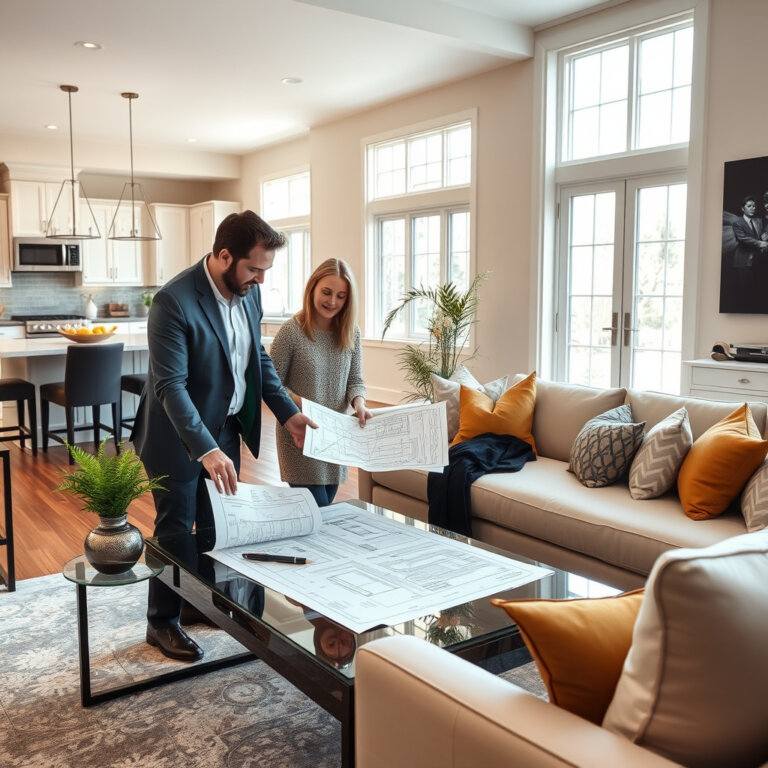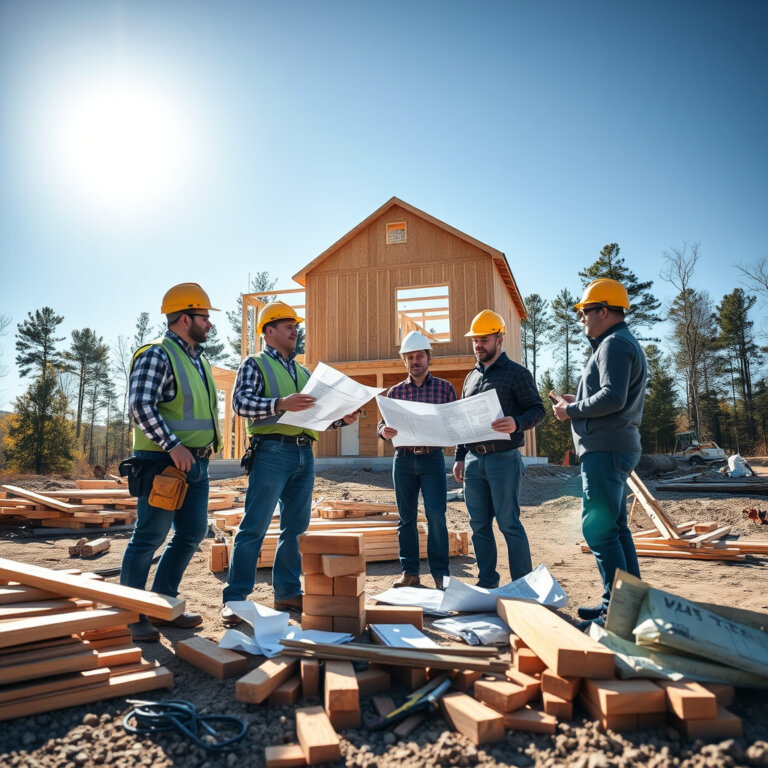Home addition evaluations Massachusetts refer to the assessments conducted to determine the feasibility, costs, and permitting requirements for residential expansions.
Home addition evaluations Massachusetts are essential for homeowners looking to expand their living space.
In this post, you’ll discover what factors to consider during evaluations, how to assess potential costs, and the necessary permits for your project.
By the end, you’ll have a clearer understanding of how to make informed decisions that align with your vision and budget.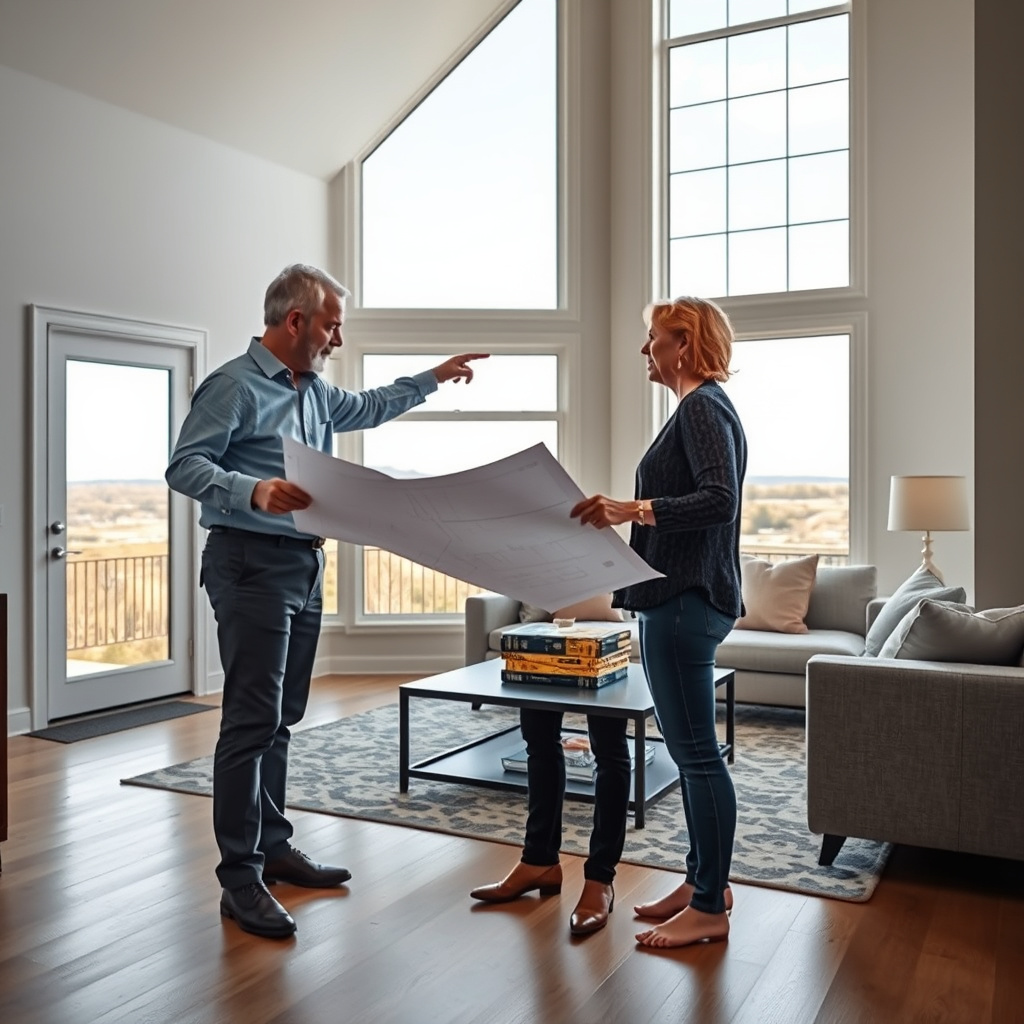
Understanding the Basics of Home Additions
When considering a home addition, it’s essential to grasp the fundamentals involved in the process. Home additions can significantly enhance your living space, providing extra room for your family, or even increasing your property’s value. However, before diving into the exciting aspects of design and aesthetics, there are practical steps to consider.
Assessing Your Needs
Begin by evaluating why you want to expand your home. Are you adding a new bedroom for a growing family or perhaps a home office to accommodate remote work? Understanding your needs will guide the entire project, from design to budget. Consider how the new space will integrate with your existing home and daily life.
- Identify the purpose of the addition.
- Explore options for layout and design.
- Think about how it will affect your current living environment.
Understanding Regulations
Before any construction begins, it’s crucial to familiarize yourself with local regulations and requirements. In Massachusetts, a home addition permit Boston MA is typically necessary. This ensures that your addition complies with zoning laws and building codes. Understanding the building permit application process MA will help streamline your project and avoid potential setbacks.
Budgeting for Your Project
Once you have a clear vision and understand the regulations, it’s time to focus on your budget. Home additions can vary significantly in cost, depending on factors like size, materials, and labor. For instance, if you are considering a kitchen or bathroom remodel, knowing the cost of kitchen remodel in Worcester MA or the cost of bathroom remodel in Boston MA can give you a ballpark figure for your overall budget.
It’s also wise to set aside a contingency fund for unexpected expenses that may arise during construction.
Choosing the Right Professionals
Finding the right team to execute your vision is critical. Hiring a licensed contractor Massachusetts or a general contractor Massachusetts with experience in home additions can make a significant difference in the outcome of your project. Look for home renovation contractors near me who come highly recommended and have a portfolio of past work that aligns with your style.
Additionally, if your project involves roofing, you may want to consider a licensed roofing contractor Newton MA to ensure the new structure is sound and weatherproof.
Planning and Design
With professionals on board, the planning and design phase can begin. Collaborate closely with your contractor and any architects involved to create a space that meets your needs while aligning with the existing structure. This phase often includes selecting materials, colors, and finishes that reflect your personal style.
It’s also important to consider the long-term implications of your addition. Think about how it will affect your home’s energy efficiency and overall maintenance.
Executing the Construction
Once everything is in place, the construction phase begins. Effective communication with your contractor is vital to ensure that the project stays on track and within budget. Regular check-ins can help address any issues that arise promptly.
During this phase, you may also need to understand the renovation permit requirements in Massachusetts to ensure compliance with local laws.
By grasping these basics, you can embark on your home addition journey with confidence, knowing you’ve taken the necessary steps to create a space that enhances your home and lifestyle. Remember, the right team and careful planning can turn your vision into reality.
Key Considerations Before Starting Your Project
Embarking on a home addition project is an exciting journey, but it’s essential to approach it with careful planning. Understanding key considerations can help you navigate the complexities and ensure a successful outcome.
Define Your Goals
Before diving into any construction plans, take a moment to define your goals clearly. Ask yourself questions like: What do I want to achieve with this addition? Are you looking to expand your living space, or perhaps create a home office? Identifying your objectives will guide your decisions throughout the process.
Budgeting Wisely
Establishing a realistic budget is a crucial step. Consider not only the visible costs but also potential hidden expenses. For instance, if you’re contemplating a kitchen remodel, understanding the cost of kitchen remodel in Worcester MA can help you set a more accurate budget. Be sure to include costs related to permits, materials, labor, and unexpected contingencies.
Research Local Regulations
Every state has its own set of regulations regarding home additions. In Massachusetts, for instance, knowing the renovation permit requirements in Massachusetts is vital to avoid any legal issues. You may need to secure a home addition permit Boston MA before beginning construction, so familiarize yourself with the building permit application process.
Choosing the Right Professionals
Selecting the right team is perhaps one of the most important decisions you’ll make. Look for licensed contractors in Massachusetts who have a proven track record in home additions. A general contractor in Massachusetts can manage the project effectively, coordinating between different trades and ensuring everything runs smoothly. It’s also wise to read reviews and ask for recommendations to find the best contractors for home additions MA.
Consider the Impact on Your Home’s Value
Think about how your project will affect your home’s value. A well-executed addition can significantly increase your property’s market appeal. If you’re planning a bathroom remodel, for example, knowing the cost of bathroom remodel in Boston MA can help you assess the potential return on investment.
Plan for Disruptions
Home renovations can be disruptive to your everyday life. Prepare for the possibility of noise, dust, and temporary dislocation from certain areas of your home. Communicate with your contractor about timelines and what to expect, so you can plan accordingly.
Stay Organized
As you move forward, keeping organized documentation is key. Track all contracts, permits, and communications with your contractors. This will not only help you stay on top of the project but also provide a clear reference point if any issues arise. Using a home renovation cost estimator Massachusetts can also assist in keeping your finances in check.
By keeping these considerations in mind, you’re setting the stage for a successful home addition project. Embrace the journey, and with careful planning and the right support, your vision can become a reality.
Navigating the Permitting Process in Massachusetts
Understanding the Permitting Landscape
In Massachusetts, the journey of adding a home addition or making any significant renovations begins with understanding the permitting landscape. Every local municipality has its own set of rules and regulations, and navigating this process can feel overwhelming. However, it is crucial to ensure that your project complies with all local codes and zoning laws. This not only keeps you in good standing with the city but also protects your investment and ensures the safety of your home environment.
Key Steps in the Permitting Process
The first step in the permitting process is to determine whether you need a home addition permit Boston MA. Generally, any alteration that increases the footprint of your home, such as a new room or an expanded kitchen, will require a permit. Before applying, gather all necessary documents, including site plans and architectural drawings. Consulting with a licensed contractor Massachusetts can help clarify these requirements.
Once you’ve prepared your documents, you will need to submit a building permit application process MA to your local building department. The application will typically ask for details about the project, including its scope, estimated costs, and the materials to be used. It’s important to be thorough and transparent in this application.
Understanding Fees and Timelines
Fees associated with permits can vary significantly based on your project’s scope and location. It’s wise to prepare for these costs early. Additionally, the timeline for approval can also vary; some projects are approved within weeks, while others might take months. Keeping in close contact with your local building department can help you stay informed about the status of your application.
Working with Professionals
Consider hiring a general contractor Massachusetts to navigate the permitting process on your behalf. Their experience can be invaluable in ensuring that all paperwork is completed correctly and submitted on time. They often have established relationships with local officials, which can expedite the process. If you’re looking for home renovation contractors near me, be sure to check their credentials and past projects to find the best fit for your needs.
Staying Informed on Local Regulations
Local regulations can change, so it’s important to stay informed about any updates that may affect your project. Engaging with your local community, attending town hall meetings, or consulting with a licensed contractor Massachusetts can provide insights into forthcoming changes in zoning laws or renovation permit requirements in Massachusetts.
By staying organized, informed, and proactive, you can successfully navigate the permitting process and move closer to realizing your home addition dreams. Whether you’re planning a kitchen remodel or a bathroom update, understanding these steps will help you achieve your goals with confidence.
Cost Breakdown: What to Expect When Adding Space
Adventuring into a home addition can be an exciting yet daunting experience. Understanding the potential costs associated with expanding your living space is crucial for planning effectively. When you consider a home addition, it’s essential to break down the expenses involved, allowing you to budget appropriately and avoid surprises along the way.
Initial Planning and Design Costs
Before diving into construction, you’ll want to invest in planning and design. This phase can include hiring a licensed contractor Massachusetts or an architect to help visualize your project. Costs here can vary widely based on the complexity of your design and the professionals you choose. Typically, you might expect to allocate around 5-15% of your total budget for these initial services.
Permitting and Legal Fees
In Massachusetts, obtaining the right permits is a vital step. Depending on your project, this may include a home addition permit Boston MA. The fees for permits can range from a few hundred to several thousand dollars. Understanding the renovation permit requirements in Massachusetts is crucial, as it can affect your overall timeline and budget. Always ensure that you factor in these costs early in your planning.
Construction Costs
Once you have your plans and permits in place, it’s time to consider the actual construction costs. These expenses will often comprise labor and materials. The price will vary depending on the size and scope of the addition. For instance, adding a new room can cost anywhere from $150 to $300 per square foot. If you’re considering adding a kitchen or bathroom, keep in mind the cost of kitchen remodel in Worcester MA or the cost of bathroom remodel in Boston MA, as these projects often require specialized work and materials.
Finishing Touches
Don’t forget about the finishing touches! This includes everything from flooring to painting, and it can significantly impact your overall budget. Depending on your choices, these costs can range from a modest amount to a substantial portion of your overall budget. Choosing the right home renovation contractors near me can help ensure you get quality work at a fair price.
Unexpected Expenses
When budgeting for a home addition, it’s wise to set aside a contingency fund for unexpected expenses. Issues such as hidden structural problems or delays in obtaining permits can add to your costs. A good rule of thumb is to reserve about 10-20% of your total budget for these unforeseen circumstances.
Final Thoughts on Budgeting
Navigating the financial aspects of a home addition doesn’t have to be overwhelming. By breaking down the costs associated with planning, permitting, construction, and finishing, you can gain a clearer picture of what to expect. Whether you’re seeking the best contractors for home additions MA or looking for a general contractor Massachusetts, being well-informed will empower you to make the best decisions for your home. Always remember to consult with professionals and utilize a home renovation cost estimator Massachusetts to get the most accurate picture of your project’s financial requirements.
Finding Reliable Contractors for Your Home Expansion
When you decide to expand your home, finding the right contractor is essential. This process can feel overwhelming, especially considering the variety of options available. However, with a clear strategy, you can connect with skilled professionals who will turn your vision into reality.
Start with Recommendations
One of the best ways to find a trustworthy contractor is to ask for recommendations from friends, family, or neighbors who have undertaken similar projects. Personal experiences can offer valuable insights into the contractor’s work ethic, reliability, and quality. Additionally, online reviews and ratings can provide a broader perspective. Websites dedicated to home improvement often feature lists of the best contractors for home additions MA, allowing you to gauge the reputation of local experts.
Verify Credentials
Once you have a shortlist of potential contractors, it’s crucial to verify their credentials. Look for licensed contractors Massachusetts who are familiar with local building codes and regulations. This knowledge is essential, especially when navigating the home addition permit Boston MA process. A licensed contractor ensures that your project complies with all legal requirements, minimizing future headaches.
Assess Experience and Specialization
Consider the contractor’s experience in specific areas that align with your expansion goals. If you’re planning a kitchen remodel, for example, seek out home renovation contractors near me who specialize in kitchen projects. Their expertise will help you understand the nuances of design and function, ensuring your new space meets your needs.
Request Detailed Estimates
After narrowing down your options, request detailed estimates from each contractor. A comprehensive estimate should include a breakdown of materials, labor costs, and timelines. This transparency helps you avoid unexpected expenses and allows for easier comparisons between contractors. When discussing costs, remember to ask about the cost of kitchen remodel in Worcester MA or cost of bathroom remodel in Boston MA if those are part of your plans.
Interview Potential Contractors
Take the time to interview the contractors you’re considering. Ask about their approach to project management, communication style, and how they handle challenges. A good contractor will be open and communicative, ensuring you feel comfortable throughout the project. Additionally, discussing their past projects can give you an idea of their style and capabilities.
Check References and Past Work
Don’t hesitate to ask for references or to see examples of previous work. Speaking with past clients can provide insight into their experiences and satisfaction levels. You might also want to visit completed projects if possible. This firsthand look can help you evaluate the quality of the contractor’s work and their attention to detail.
Understand the Contract
Once you’ve selected a contractor, ensure you thoroughly understand the contract before signing. The agreement should clearly outline the scope of work, payment schedule, and timelines. Pay attention to any clauses related to changes in the project, as these can impact costs and timelines significantly.
Finding a reliable contractor for your home expansion requires careful consideration and research. By taking the time to assess your options, verify credentials, and communicate openly, you can ensure a successful project that enhances your home for years to come.
Maximizing Your Investment: Design Tips for Home Additions
Ao considerar uma adição à sua casa, o objetivo principal é maximizar seu investimento. Com um planejamento cuidadoso e um design inteligente, você pode transformar um espaço extra em uma área que não só atenda às suas necessidades, mas também valorize sua propriedade. Aqui estão algumas dicas essenciais para garantir que sua adição não apenas funcione bem, mas também se encaixe perfeitamente no seu lar existente.
1. Planejamento Funcional
Antes de qualquer coisa, pense no propósito da sua adição. Você está visando expandir a sala de estar, criar um escritório em casa ou adicionar um quarto extra? Defina claramente a função e considere como esse novo espaço se integrará ao restante da casa. Um layout bem planejado pode fazer uma enorme diferença, garantindo que a nova área seja prática e confortável.
2. Harmonia Estética
A estética é crucial para uma adição bem-sucedida. A nova construção deve complementar o estilo arquitetônico da sua casa. Use materiais e cores que se alinhem com o que já existe, e não esqueça dos detalhes, como telhados e acabamentos. Uma boa dica é consultar um licensed contractor Massachusetts para garantir que a nova adição se funde de forma harmoniosa com a estrutura original.
3. Maximização da Luz Natural
A luz natural pode transformar qualquer espaço, tornando-o mais acolhedor e convidativo. Considere adicionar janelas grandes ou até mesmo portas de vidro deslizantes que se abram para um pátio ou jardim. Isso não só tornará o espaço mais agradável, mas também pode ajudar a reduzir custos com energia a longo prazo.
4. Eficiência Energética
Nos dias de hoje, a eficiência energética é uma prioridade. Ao planejar sua adição, pense em soluções como isolamento adequado, janelas com eficiência energética e sistemas de aquecimento e resfriamento que economizem energia. Essas decisões não apenas ajudam o meio ambiente, mas também podem diminuir suas contas de energia ao longo do tempo.
5. Considerações de Orçamento
Antes de mergulhar em seu projeto, é essencial ter um orçamento claro. O home renovation cost estimator Massachusetts pode ajudar a estabelecer uma estimativa realista dos custos. Considere todos os aspectos, desde materiais até mão de obra, e reserve uma parte do orçamento para despesas imprevistas. Ao trabalhar com um general contractor Massachusetts, você pode garantir que está obtendo o melhor valor e que o projeto será concluído dentro do prazo e do orçamento.
6. Escolha os Melhores Profissionais
Encontrar os best contractors for home additions MA é vital. Pesquise e entre em contato com home renovation contractors near me para discutir suas ideias. Pergunte sobre suas experiências anteriores com projetos semelhantes e não hesite em pedir referências. Trabalhar com profissionais experientes pode fazer toda a diferença, ajudando você a evitar armadilhas comuns e garantindo que a construção siga as renovation permit requirements in Massachusetts.
7. Pensando no Futuro
Ao planejar sua adição, pense também no futuro. Seu estilo de vida pode mudar e a adição deve ser flexível o suficiente para se adaptar a essas mudanças. Considere características que podem ser facilmente transformadas ou expandidas, como um espaço que pode se tornar um quarto de hóspedes ou um escritório em casa à medida que suas necessidades evoluem.
Em última análise, maximizar seu investimento em uma adição à sua casa envolve um equilíbrio entre funcionalidade, estética e planejamento financeiro. Com as dicas certas e a ajuda de profissionais qualificados, você pode criar um espaço que não apenas atenda às suas necessidades, mas também adicione um valor significativo à sua propriedade.
Post-Project Checklist: Ensuring Satisfaction with Your New Space
Reviewing the Final Touches
When the dust settles on your home addition, it’s time to take a close look at the final details. Begin by walking through your new space with a critical eye. Check for any minor issues, such as paint touch-ups or flooring imperfections. These small details can significantly impact how you feel about your new area. If you notice anything that needs attention, make a list to discuss with your licensed contractor Massachusetts.
Functional Assessment
Next, evaluate how well the new addition serves your needs. Does the layout work for your lifestyle? Are there enough outlets, lighting fixtures, or storage solutions? This is the perfect time to think about the functionality of the space. If any adjustments are necessary, consider coordinating with your general contractor Massachusetts to implement changes that will enhance usability and comfort.
Safety Checks
Safety should always be a priority, especially after a renovation. Ensure that all installations comply with local building codes, including those related to electrical systems and plumbing. If you haven’t yet, familiarize yourself with the home addition permit Boston MA requirements to confirm everything is up to standard. It’s wise to schedule a professional inspection if you have any doubts about safety or compliance.
Gathering Feedback
If you’re living with family or friends, gather their input on the new space. Does it meet their expectations? Their feedback can provide valuable insights that you might not have considered. Engaging with others can help foster a sense of community in your newly expanded home.
Final Documentation
Make sure you have all necessary documentation from your contractors, including warranties and maintenance instructions. This paperwork can be crucial for future repairs or renovations. Keep this information accessible, as it will save you time and headaches later on.
Enjoying the New Space
Finally, take a moment to truly enjoy your new space. Arrange it to reflect your style and personality. Add personal touches that make it feel like home, whether it’s artwork, plants, or cozy furniture. This new area should be a place where you feel relaxed and happy.
Plan for Future Adjustments
As you settle into your newly expanded home, remember that adjustments may still be necessary after some time. What works now might change as your needs evolve. Keep an open line of communication with your home renovation contractors near me, as they can help you adapt your space in the future.
By following this checklist, you can ensure that your new addition not only looks great but also meets your functional and emotional needs, making your home a more enjoyable place to live.

At Builders RD, our editorial team is made up of construction professionals, researchers, and local content strategists who specialize in home improvement, permitting, and contractor services across Massachusetts. We work closely with industry experts, licensed contractors, and municipal guidelines to deliver accurate, actionable content that helps homeowners, investors, and builders make confident decisions.
Our mission is to simplify the construction process through trustworthy guidance — from permit applications to hiring the right team — so you can build smarter, safer, and with full peace of mind.
— Builders RD Editorial Team

